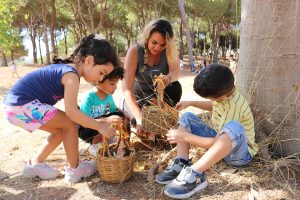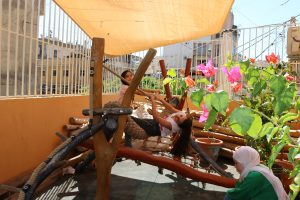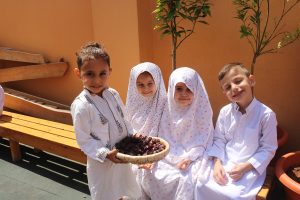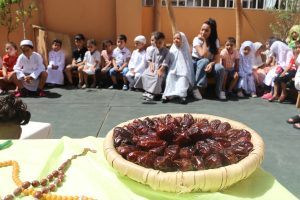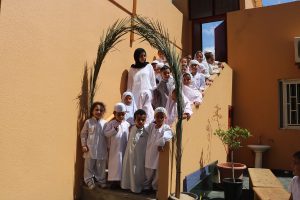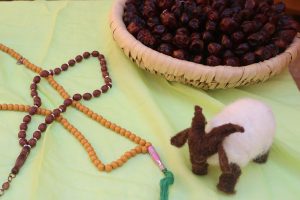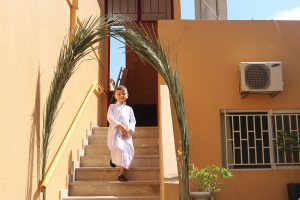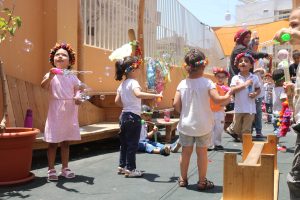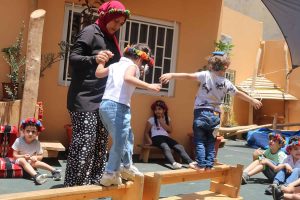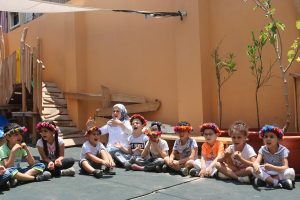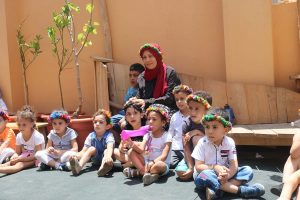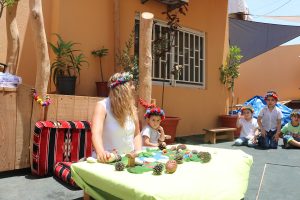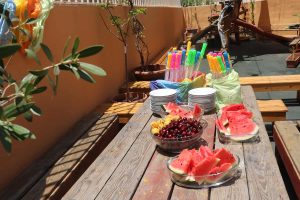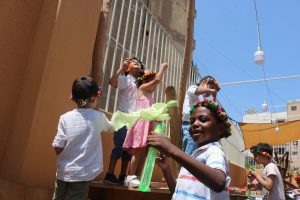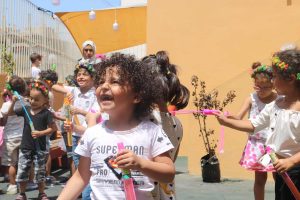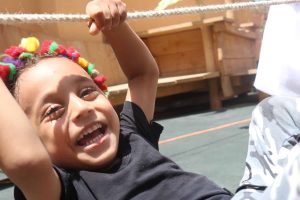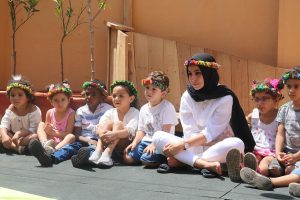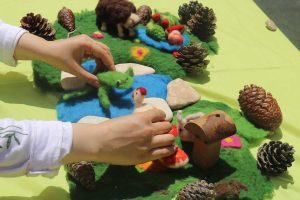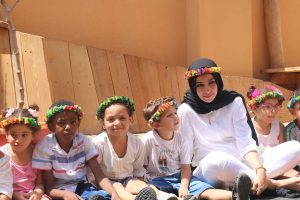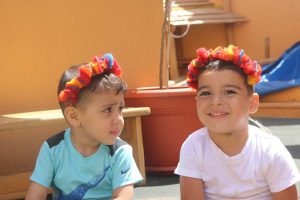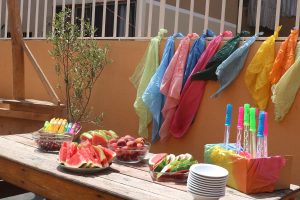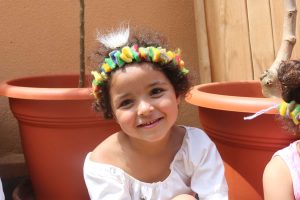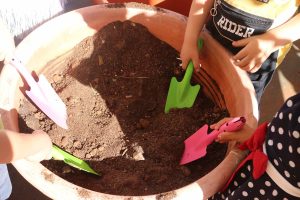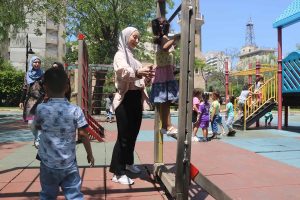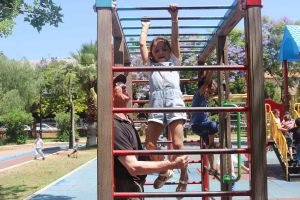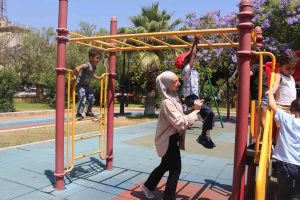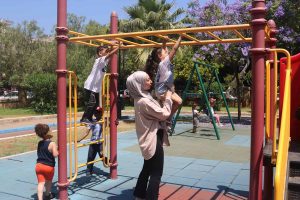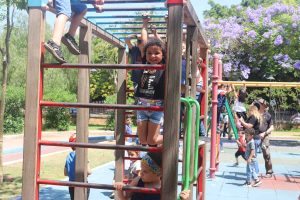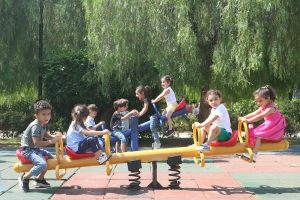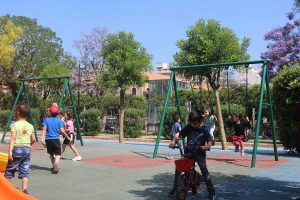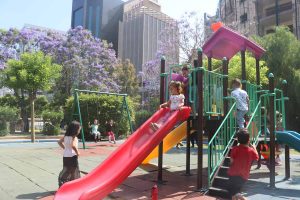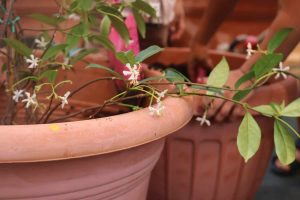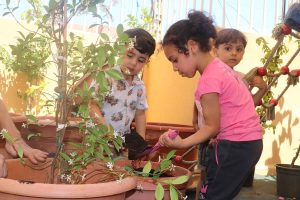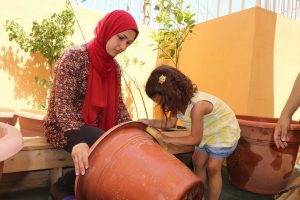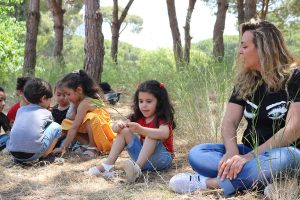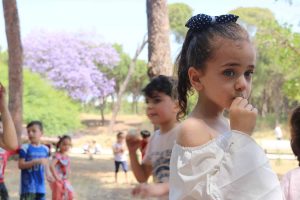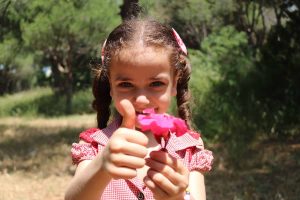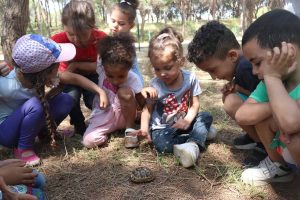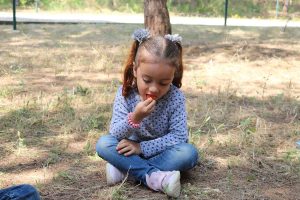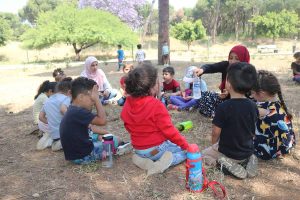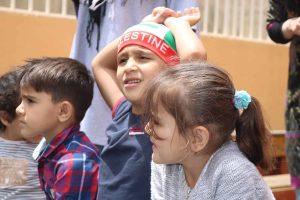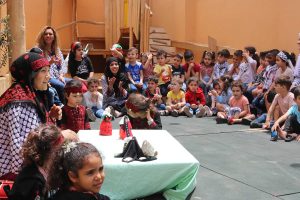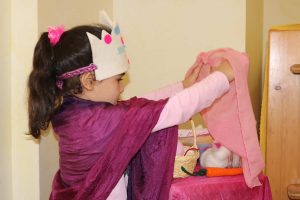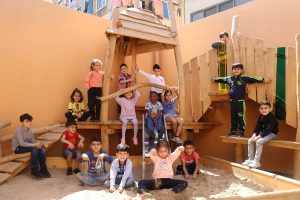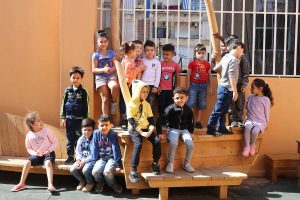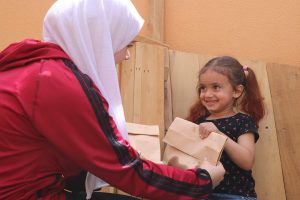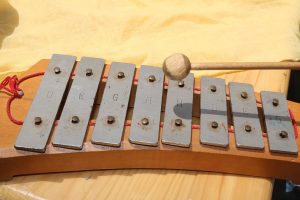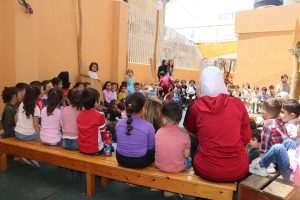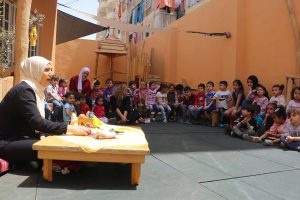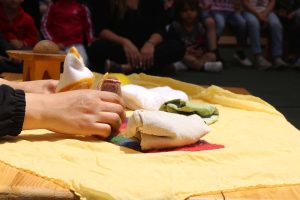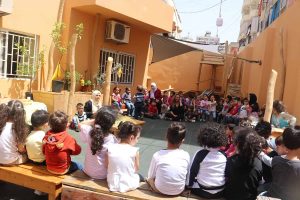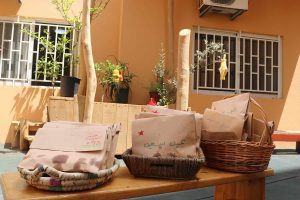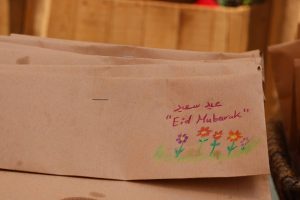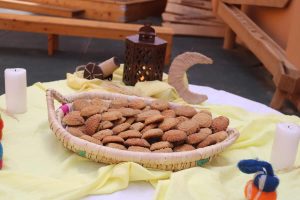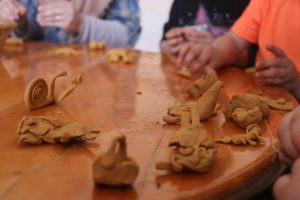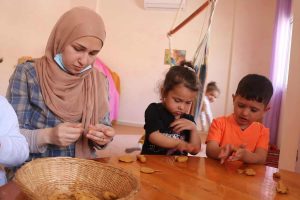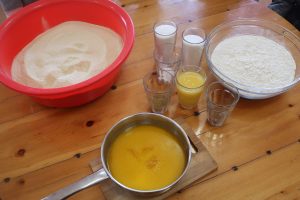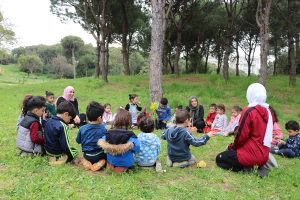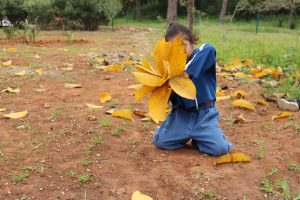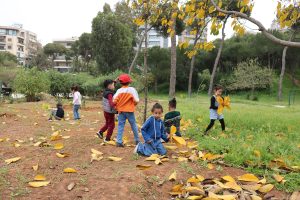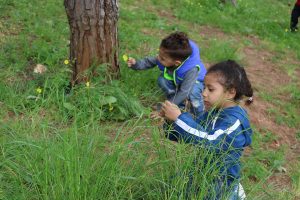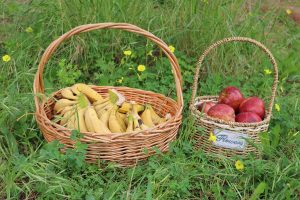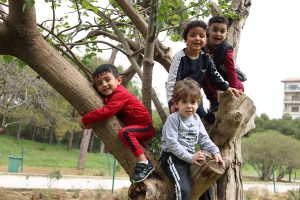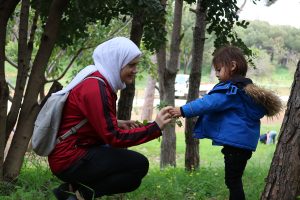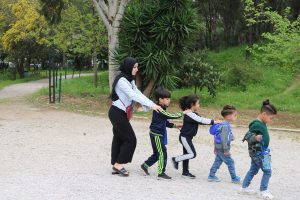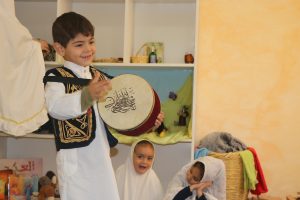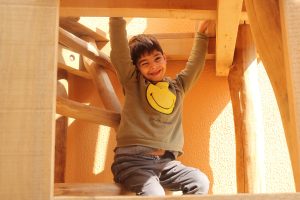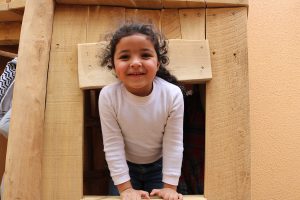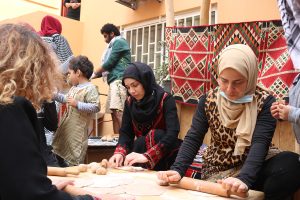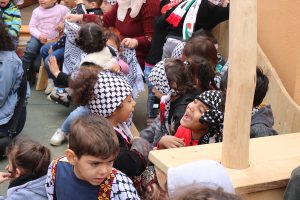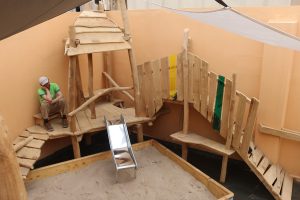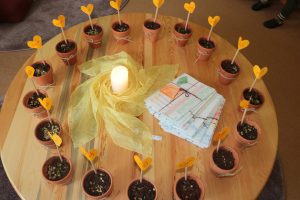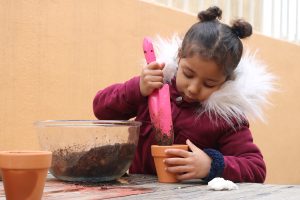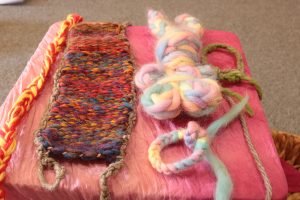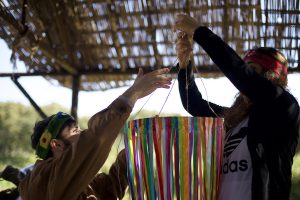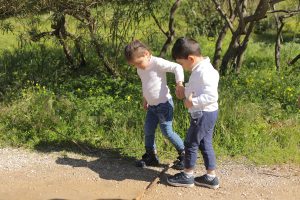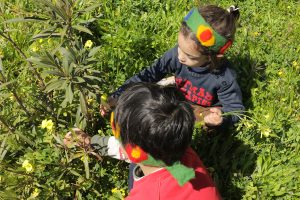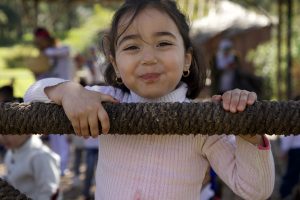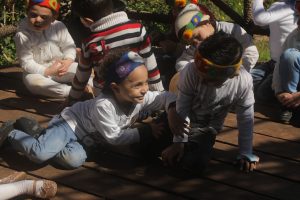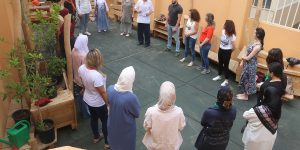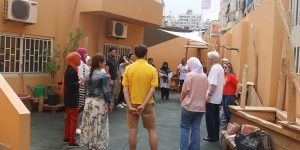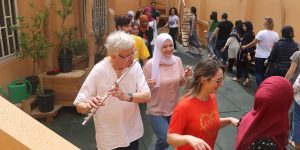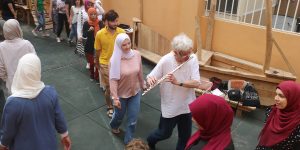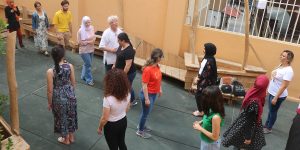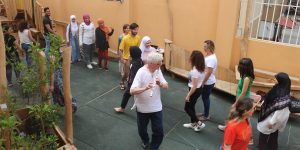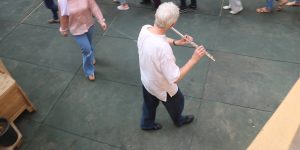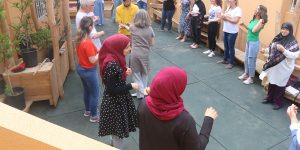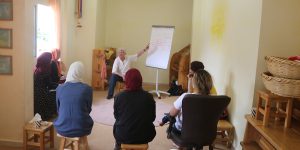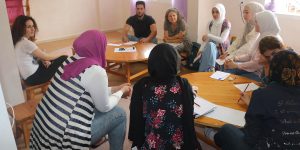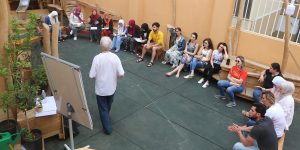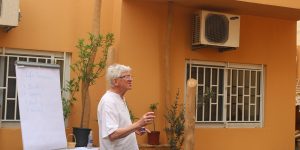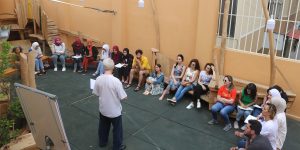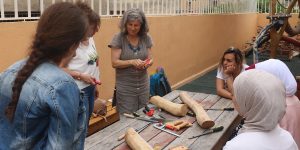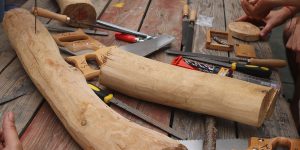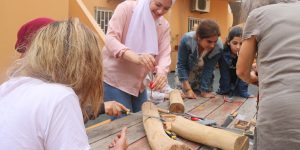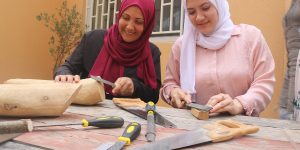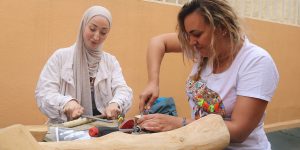The first and core project of Just.Childhood is the kindergarten Bait al-Shams in Sabra (formerly in Shatila) camp established in 2015. It was thought of as a best-practice and therefore aimed at serving as a base for establishing similar projects in the other 12 Palestinian camps or in any of the other 42 official gatherings in Lebanon.
Just.Childhood aims at providing equal access to age-appropriate, non-violent, holistic Early Childhood Education in order to prepare the children for school and life and to prevent constantly increasing early school dropouts.
Just.Childhood’s kindergartens have linked themselves to the Waldorf Early Education approach, due to its practical, rhythmic and artistic elements, that have a substantial positive therapeutic influence also on traumatized children (and parents) especially in environments like Sabra and Shatila and other refugee camps.
The educational work in the kindergarten is encouraging and advancing the physical, emotional, mental and social strength of the children. They are given the opportunity to strengthen their individual skills, as well as their group behavior. An integrated educational approach provides the children with the knowledge, competencies in language and social skills that need to be achieved by entering school. In order to describe our project activities, we would like to first put down our educational principles, as they shed a light on our activities:
What is important to us, and in line with the Waldorf educational principle, is the fact that we are introducing letters and numbers as late and as simple as possible. This is ought to the belief that education should cater to the needs of children at their specific development stages. All subjects are introduced in age-appropriate fashion and time. Very little attempts of formal instruction is made as this might cause premature hardening of the intellect, leading to inflexible thinking in adulthood. In our belief, young children need to experience the relevance of their world before they separate themselves from it and begin to analyze it in a detached way.
The learning experience of the children in our care therefore is integrated and not subject-based. Mathematics and use of mathematical language, for example, is taking place at the cooking table, where food is prepared (thinly sliced carrots make wonderful natural circles and have the added virtue of being able to be eaten later in soup!) and concepts such as addition and subtraction (or more or less), weight, measure, quantity and shape are grasped in a practical manner as part of daily life.
Children are able to tell a story by ‘reading’ the pictures in a book, which develops verbal skills, frees the narrative from the printed text and encourages children to use their own words. Many children also act out or perform puppet shows and develop dramatic skills through working with narrative and dialogue in an artistic way. The conversations around the meal table give the children the opportunity to become familiar with listening and speaking, rhyming and riddles. Painting and drawing help with balance and symmetry, and craft activities also develop fine motor skills.

